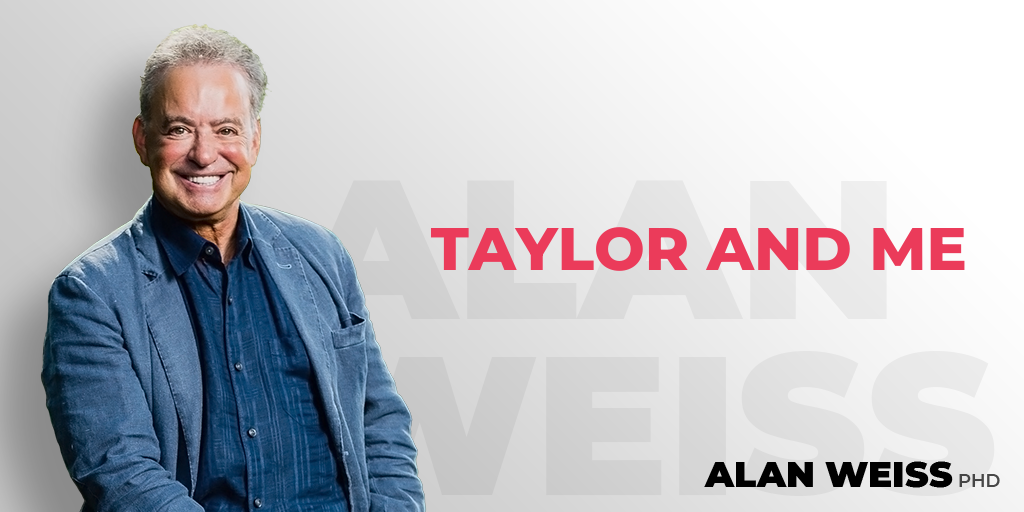How Boards Help (Or Hurt) Non-Profits
This is an op-ed piece published yesterday in the Providence Journal:
Alan Weiss: How boards can help, hurt nonprofits
01:00 AM EST on Wednesday, December 10, 2008
ALAN WEISS
I’VE BEEN A CONSULTANT for over 25 years, working with organizations of all sizes all over the world. I’ve found that tough times serve to exacerbate both strengths and weaknesses. Strong assets can become keys to thriving, but significant weaknesses can become fatal flaws that undermine survival.
Over the years, my wife and I have served on dozens of nonprofit boards and are currently on six between us. Board leadership of the organization (and leadership of the board) is critical to nonprofit success, particularly in this economy, especially in a small state. Many people claim, mistakenly, that there is no money to be raised under current circumstances and that people are loath to contribute to the arts, or education or social needs.
But that’s not true in my experience. Rhode Island has a core of very generous people and institutions. Case in point: We recently raised $140,000 in two weeks for the Newport International Film Festival (NIFF) after going public with the reality that we’d have to shut down if we couldn’t raise a minimum of $100,000 in that time frame.
There are terrific people serving on boards here, passionate about the organization, generous of spirit and wonderful in giving time. This is not an indictment of boards or their members, but suggestions for optimizing both.
Here are some guidelines for success, more important than ever in tough times:
• Appropriate board members. No matter how wonderful their intentions, board candidates should bring at least four assets to be appointed: passion; intellectual capital; contacts who can be accessed to support the cause, and the ability to donate or raise funds. Advisory committees, task forces and subcommittees can be formed to accommodate others who don’t meet these criteria. (And there should be minimum attendance requirements for board members.)
• Term limits. I was shocked at one board meeting when a woman next to me remarked she had been a board member for 22 years! Boards need fresh blood. Community Preparatory School, in Providence, is a good example of a board that demands sabbaticals for board members, during which committee membership is allowable, but after which the individual may or may not be reappointed.
• Mandatory financial contribution (donated or raised). Both our major anonymous donor ($90,000) and Steve Feinberg, executive director of the Rhode Island film commission, and who came to our aid, insisted that our NIFF board be fully committed. That means meeting our minimum of contributing or raising $5,000 annually. It’s awkward to ask the public for money when the board members aren’t donating or raising funds themselves. I believe that’s an ethical necessity.
• Acting as more than a fund-raising committee. Boards have relatively few responsibilities, but two critical ones are governance and evaluation of senior management. Too often, senior management (artistic directors, executive directors, managing directors, etc.) don’t have results-oriented goals, and their performance is not critically reviewed, which isn’t fair to them.
• Resisting micromanaging. I estimate that 75 percent or more of most boards’ time is focused on issues properly in the complete domain of management. I’ve sat through the details of fundraisers, how much food coupons will cost, how to price T-shirts, and other minutiae that is none of the board’s business and shouldn’t usurp the precious time of the members.
We’ve been blessed in Rhode Island to have seen the likes of Adrian Hall, Richard Jenkins, Curt Columbus, Misha Djuric, Larry Rachleff, Tony Estrella, the superb RISD Museum, with its world-class artists, and all the rest of the people and performances in our rich arts scene. My experience is that the cultural scene in and around Providence is richer than a city of its size otherwise merits. (For example, Trinity Rep and Steppenwolf Theater of Chicago are often favorably compared, yet Chicago has nearly 3 million people within the city itself, about 10 times that of Providence.) According to one report I saw, the cultural and arts scene in Rhode Island is the second largest contributor to the economy, behind tourism, which you can easily link to the former.
Millions of school children have been exposed to the performing and fine arts through these institutions over the decades. (Festival Ballet is currently exploring adaptive dance programs for physically challenged children.)
We’re also blessed with generous people who believe in the arts, and who contribute consistently and diversely. Many have their names on the walls, many are anonymous. Sometimes, unfortunately, they are bailing out boards that haven’t performed well rather than contributing to an exciting future.
Thus, “nonprofit” doesn’t mean “non-professional.” We’re dealing with huge amounts of public money and public trust. Boards have to be led, and themselves lead, so that the money and the trust are confidently given. That’s not an issue of the economy.
It’s an issue of stewardship.
Alan Weiss is a consultant who lives in East Greenwich.







Alex Saloutos
Alan, touche! Thanks for sharing this. It’s on the mark.
Hildy Gottlieb
Alan:
Great points. I love your comment that “nonprofit” doesn’t mean “non-professional.” We have actually been advocating replacing the word “nonprofit” with “Community Benefit Organizations” – talking about what we DO, rather than what we are not http://tinyurl.com/6djsjq
The most critical role of a board, though, is not fundraising – it is governance, which is first and foremost about leadership and accountability. A board’s primary accountability must be to ensure the community receives the benefit the organization promised to provide. From there, accountability for the means will follow – including legal and operational oversight. Fundraising is an option – the rest of these are not.
When boards hold themselves accountable for means over ends, many of the problems you noted above occur. When boards hold themselves accountable for the end results the organizations provides, boards are engaged and their organizations thrive.
Thanks for raising the issue!
Hildy Gottlieb
Author: Governing for What Matters
http://tinyurl.com/5jqcbm
Scott Norwood
It would be nice if NIFF would pay its employees what they are owed from the 2009 festival.
I realize that Dr. Weiss has resigned from the board since the festival, but there is something very wrong with this organization at the moment. As has happened in the past, the festival seems to have spent more money than it had, and has not even reimbursed expenses paid for by me and others. This is not indicative of a well-managed or thriving organization.
Alan Weiss
Scott, As I replied to you privately, I’m no longer with the organization, per my agreement and my term. I’ve contributed to them this new year, and I know you received a response from their treasurer. You deserve to be paid. I suggest you try to work with them to make sure you’re a top priority. There’s nothing I can do for you.